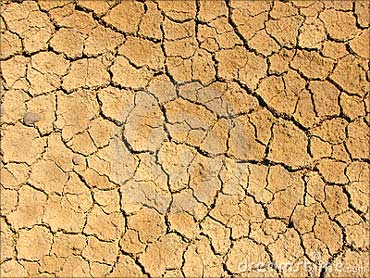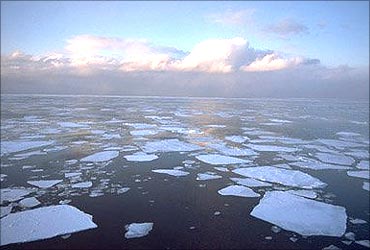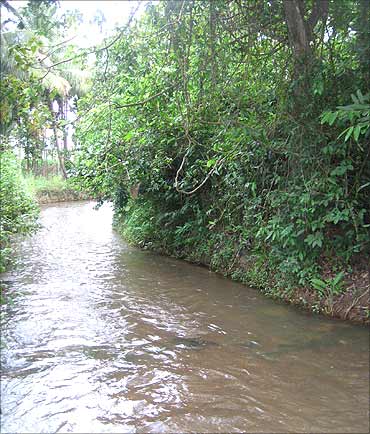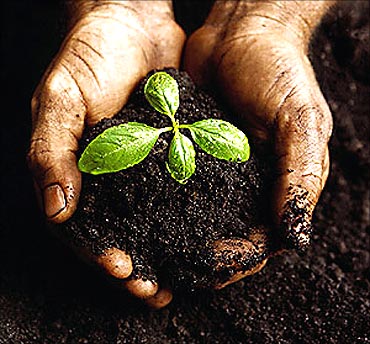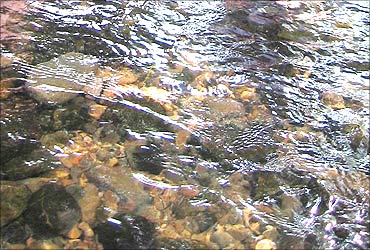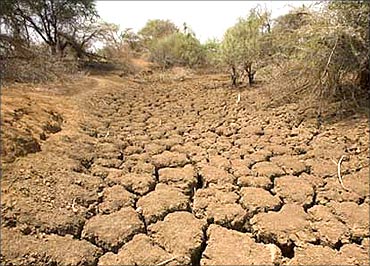This article was first published 15 years ago
Global warming to rise, soil dries up
Last updated on: October 13, 2010 16:44 IST
Image: Soil dries.
The soils in large swaths of the world including vast areas of central India, Australia, Africa and South America have been drying up, a new study has found, warning that this could intensify global warming and reduce vegetation growth.
The Oregon State University study which looked at the natural phenomenon of "evapotranspiration" on a global scale discovered that important regions in the Southern Hemisphere are losing their soil moisture and drying up.
Evapotranspiration, or the movement from the land to the atmosphere, is a key component of the global climate system.
...
Image: Global warning, big threat.
It returns about 60 per cent of annual precipitation back to the atmosphere, in the process, using more than half of the solar energy absorbed by land surfaces.
The new research, the first to examine evapotranspiration on a global scale, prove that climate models predicting an increase in the phenomenon with global warming are true, LiveScience reported.
Image: Loss of water.
The researchers, who examined the phenomenon between 1982 and late 1990s, found that by 1998 most soils in South America began showing no signs that this process was still operational.
Other large areas only lost minimal amount of water to the phenomenon. Because the data only goes back for a few decades, the researchers said they can't be certain whether the change is part of the natural variability of climate or part of a longer-lasting global change.
Image: Threat to vegetation.
One possibility, though, is that on a global level, a limit to the acceleration of the hydrological cycle -- the transfer of water between land, air and sea -- on land has already been reached. If that's the case, the consequences could be serious, the researchers said in a paper published in journal Nature.
The effects, according to them, could include reduced terrestrial vegetation growth, less carbon absorption, a loss of the natural cooling mechanism provided by evapotranspiration, more heating of the land surface, more intense heat waves and a "feedback loop" that could intensify global warming.
Image: Climate varies.
"We didn't expect to see this shift in evapotranspiration over such a large area of the Southern Hemisphere," said study co-author Beverly Law, a professor at Oregon State University.
"It is critical to continue such long-term observations, because until we monitor this for a longer period of time, we can't be sure why this is occurring."
Image: Drought.
According to the researchers, some of the areas with the most severe drying included much of Australia, central India, large parts of South America, southeast Africa and some of Indonesia. Most of these regions are historically dry, but some are actually tropical rain forests.
The abrupt change from increased global evapotranspiration to a near halt in this process coincided with a major El Nino event in 1998, the researchers added.
Source:
PTI© Copyright 2025 PTI. All rights reserved. Republication or redistribution of PTI content, including by framing or similar means, is expressly prohibited without the prior written consent.
